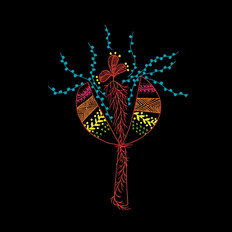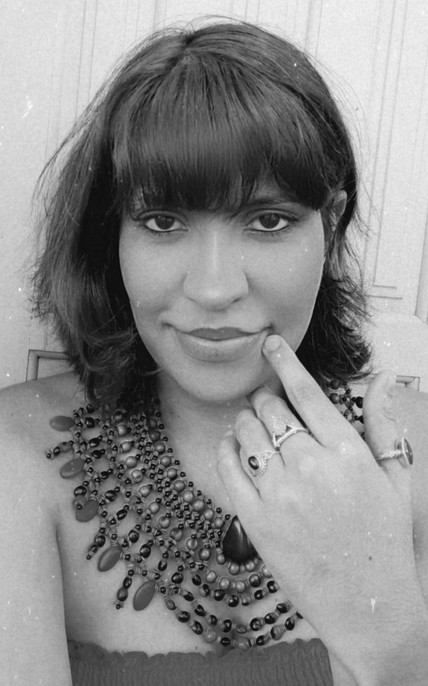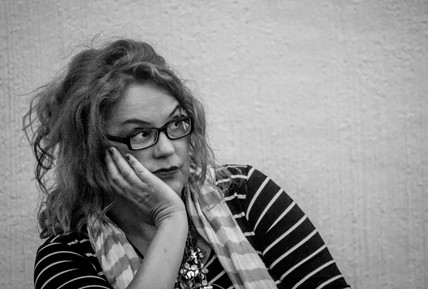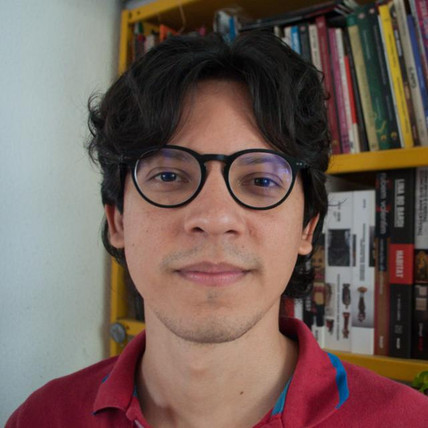
Indígenas.br - Indigenous Music Festival - Schedule 04/09
04/09 – Saturday – 7:00pm
Documentary show
— Music is a weapon of struggle — Director: Carou Trebitsch, Idjahure Kadiwéu, Lucas Canavarro and Nana Orlandi — 2021
Chat with curators Magda Pucci and Renata Tupinambá about the program and the director of the documentary Música is a weapon of struggle, Idjahure Kadiwéu
Music is a fighting weapon
A short film documentary focusing on the importance of the songs, prayers and musicality of indigenous peoples in their resistance against attacks and violations of their original rights.
It was filmed and edited in Brasília, between August 22 and 31, 2021, during the Fight for Life, the largest national indigenous mobilization in history for the original rights to Indigenous Lands, guaranteed in the Federal Constitution and against the thesis of the time frame under trial at the STF.
With Idjahure Kadiwéu, Daiara Tukano, Almir Suruí, Ninawa Inu Huni Kuin, Abraham Shane Huni Kuin, Tsaihê Pataxo, Moses Xavante, Renata Kadiwéu, David Terena, Ian Wapichana, Yaku Runa Simi (Quechua), Cecilio Xukuru, Brisa Flow and Nino Will be Txunu
Realization: Mi Mawai and Noosphere Media
Photography: Jon Thomaz and Vik Birkbeck
Direct sound, sound design, assembly and visual programming: Lucas Canavarro
Additional camera: Carou Trebitsch, Lucas Canavarro and Nana Orlandi
Additional sound: Nana Orlandi
Communication base team: Lala Carneiro and Marcelo Mucida
Support: Gabriel Naumann and Orlando Orlandi
Renata Tupinaba

Journalist, producer, poet, consultant, curator, screenwriter and visual artist. It works and researches communication aimed at decolonizing the media, strengthening indigenous narratives in cinema, TV, literature, audio and music.
It has been working since 2006 with dissemination of indigenous cultures and communication. She is the co-founder of Rádio Yandê, Brazil’s first indigenous radio web. Collaborator of Indigenous Visibility. He is a co-writer of the series Sou Moderno, I’m an Indian of Cine Brasil TV. He was an assistant in production and communication at the Echoes Observatory of musician Marcelo Yuka. Creator of the Originárias podcast, first in Brazil for interviews with indigenous artists and musicians, which is part of the PodSim female Podcast hub. He currently also works in the production of indigenous artists and musicians.
Magda Pucci

Magda Pucci is a musician (arranger, songwriter and singer) and independent researcher of music from the world and Brazilian indigenous cultures. Graduated in Music from USP, a Master in Anthropology from PUC-SP and PhD in Artistic Research from the University of Leiden, in the Netherlands. She is a music director and founder of Mawaca, a music group based in São Paulo, which researches and performs music in more than 20 languages, having received some awards in the area.
He worked on musical projects in collaboration with Brazilian indigenous communities, such as Kayapó, Guarani Kaiowá, Huni-Kuin, Paiter Suruí and others, as well as social projects with children and refugees. Magda Pucci’s experience with the indigenous theme deepened when she completed her master’s degree in Anthropology, when she developed research on the oral art of Paiter Suruí in Rondônia. Since 2005, he has developed projects for the dissemination of indigenous cultures, from the publication of books to shows and exchanges between indigenous and non-indigenous, such as the CD and DVD Rupestres Sonoros — The singing of the peoples of the forest, with recreations of songs from Kayapó, Paiter-Suruí, Ikolen-Gavião, Tupari, Huni-Kuin among others. In 2011, he made musical exchanges in the Amazon with Mawaca with musicians Ikolen-Gavião, Paiter Suruí, Kambeba, Huni Kuin, Karitiana and Comunidade Bayaroá. In 2019, Mekaron held the image of the soul — a meeting of Mawaca with the Kayapó.
Idjahure Kadiwei

Idjahure Kadiwel is an indigenous poet, editor, translator and anthropologist, belonging to the Terena and Kadiwéu peoples. He is the editor of the Tembetá collection (Azougue Editorial) and the catalogue of the exhibition Véxoa: We Know (Pinacoteca de São Paulo), a correspondent of Radio Yandê and host of the podcast NhexyrÕ: indigenous arts in network. He holds a master’s degree in Social Anthropology from the National Museum/UFRJ and a PhD student at the University of São Paulo